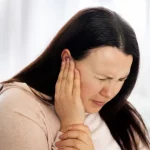The human digestive system comprises about 30 feet of complex organs and tissues designed to convert food into nutrients and energy while disposing of unused materials as waste. The complex functions of your digestive system sometimes mean that things don’t work the way that they should, leading to pain, discomfort, and potentially some serious stomach issues. Let’s take a look at some of the most common causes of stomach pain and natural ways that you can treat them.
Constipation
There are no set rules when it comes to bowel movements. Research suggests a healthy amount could be anywhere from two to three times a day to three times per week. Any less than that or less than the normal amount of bowel movements for you may indicate constipation, which can cause stomach pain and bloat.
Constipation can be treated by drinking more water, eating more high-fiber foods, or taking a probiotic supplement.
Lactose Intolerance
Lactose is a type of sugar often found in milk and other dairy products. However, about 75 percent of the global population does not produce enough lactase, an enzyme that is necessary to properly break down lactose. Without lactase, ingesting dairy can result in gas, bloating, abdominal cramps, and diarrhea. People with severe lactose intolerance may experience nausea and vomiting.
There isn’t a cure for lactose intolerance but you can eliminate dairy products from your diet. If you enjoy dairy products but are lactose intolerant you can also take a digestive enzymes supplement that contains lactase to help break down lactose. Studies also suggest that probiotics may potentially help to reduce the symptoms of lactose intolerance because probiotics are able to break down lactose into the more easily absorbed form called lactic acid.
Acid Reflux
The entrance of your stomach features a ring of muscle known as the lower esophageal sphincter. Normally, this ring acts as an effective valve that allows food to go through without passing back out. However, the valve may not close all the way or open too often, causing stomach acids to move back up your esophagus, which is known as acid reflux. This is most noted by a burning chest pain called heartburn, but it may also cause regurgitation of food and stomach pain. Acid reflux that happens more than twice a week is known as gastroesophageal reflux disease (GERD).
Acid reflux can be treated with some simple lifestyle changes (eating slower or having smaller meals) along with the use of antacids or digestive enzyme supplements that can help break down foods and stimulate peristalsis – the contractions of the GI tract that move stomach contents forward instead of backward.
Gastroenteritis
Often mistakenly referred to as the stomach flu, gastroenteritis is inflammation of your intestinal caused by bacteria, virus, or parasites. It is spread via contact with an infected person and ingestion of contaminated food or water. Symptoms of gastroenteritis usually include abdominal pain, diarrhea, vomiting, and fever.
Gastroenteritis is generally not serious and should pass on its own. The greatest issue is often dehydration from excessive diarrhea and vomiting. Make sure you drink plenty of water and replenish your electrolytes.
Sources:
- https://www.livescience.com/22367-digestive-system.html
- https://www.healthline.com/health/how-many-times-should-you-poop-a-day
- https://www.healthline.com/nutrition/lactose-intolerance-101#section1
- https://www.webmd.com/heartburn-gerd/guide/what-is-acid-reflux-disease#1
- https://medlineplus.gov/gastroenteritis.html



![[Adult Acne] Common Causes, Remedies, and Best Treatments Adult Acne](https://www.safeandhealthylife.com/wp-content/uploads/2023/02/Adult-Acne-150x150.jpg)

